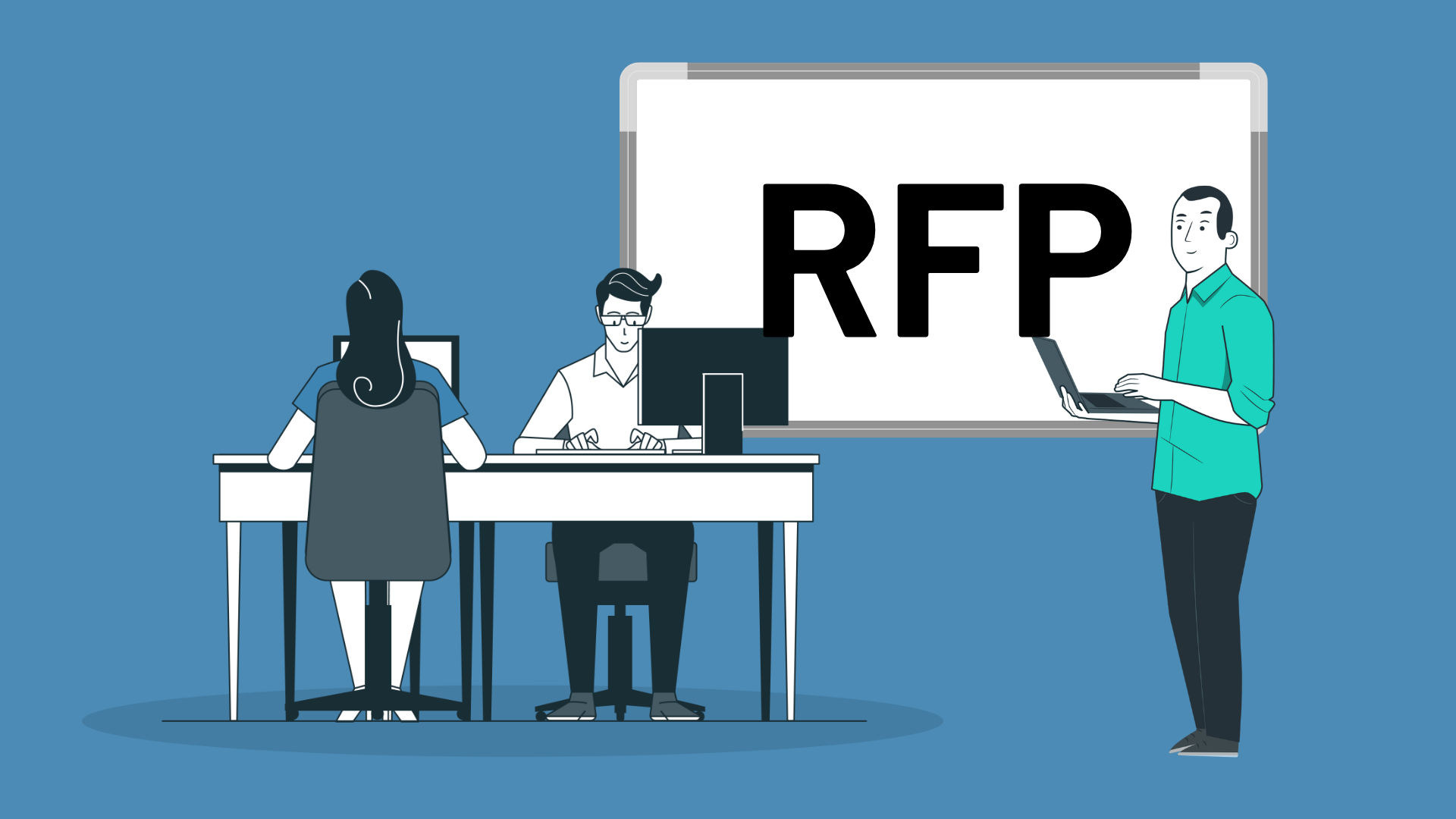RFP Meaning: What Is an RFP?


The term RFP means “Request for Proposals.” RFPs are documents created by an organization to request potential proposals from vendors. Organizations often request proposals from potential vendors of goods and services. Thus, the meaning of an RFP is to outline an organization’s needs and invite vendors to submit proposals detailing how they can meet those needs.
Issuing an RFP is an early step in the “procurement process.” What is the procurement process, you may ask? It’s the process of finding, selecting, and entering into a contract with a qualified vendor.
The RFP kicks off the solicitation process by releasing the proposal request to potential vendors.
Formal vs Informal RFP
A formal RFP is a comprehensively written document. Organizations publically announce formal RFPs upon release. This serves to notify vendors about potential RFPs. Additionally, organizations seek to maintain their transparency and notify the public about the state and manner of public spending. Ultimately, however, the meaning of a formal RFP is to give notice and invite interested parties to submit proposals.
An informal RFP is not publicly announced. However, interested vendors and parties should approach informal RFPs as if they were formal. Informal invitations to bid require comprehensive responses written with an eye for detail. One meaning of an informal RFP is to signal to vendors that price might not be the decisive criterion for evaluators.
RFP documents are prevalent in the public sector. Therefore, many government agencies use the RFP selection process as their primary way of finding qualified service providers. Companies ultimately use the RFP process to organize data and make strategic purchasing decisions. The process filters out vendors who cannot maximize value and minimize risk.
A well-crafted RFP is essential for attracting qualified vendors, receiving competitive proposals, and ultimately making an informed selection.
Having trouble finding an RFP? We suggest using an RFP search engine (like The Bid Lab’s very own Bid Banana!). Learn more about where to find RFPs and why you should search for RFPs online in our Learning Center.
Ensure that your RFP is well-organized, easy to read, and follows a consistent style and formatting. The RFP should be written in a clear and concise manner using straightforward and precise terms.
Discussing Elements of a Well-Crafted Proposal
There are several key elements of a well-crafted RFP:
- Overview and Background Information: Give a clear and brief summary of what the project entails. Summaries should include an understanding of the key elements, objectives, and scope. Ultimately, vendors should walk away with an understanding of their organization and any relevant information that can help them develop their proposals.
- Timeline and Milestones: Specify your project timeline, key milestones, and deadlines for proposal submission, questions and responses, and revisions.
- Proposal Submission Format: Outline the format, method, and deadline for proposal submission. With explicit instructions, specify the number of copies required, electronic submission requirements, and any submission fees.
- Detailed Project Description: A Statement of Work (SoW) description describes the requirements and constraints of the project. This is a comprehensive description of the project, its objectives, and technical or functional requirements.
- Budget Information: Provide budgetary information or cost estimates whenever possible. This will ensure vendors understand your financial expectations.
- Legal and Compliance Requirements: State any legal, regulatory, or compliance requirements that vendors must adhere to while executing the project.
- Terms and Conditions: Specify terms and conditions relevant to the project, including payment, warranties, intellectual property rights, and termination clauses.
- Past Performance and References: Request information regarding a potential vendor’s relevant past performance, which can help assess their capabilities.
- Evaluation Criteria: RFPs define the evaluation criteria. So, they determine the process that will award businesses the contract. Therefore, you should include factors like price, quality, experience, and compliance with specific standards or regulations. Also, include any key stakeholders involved in the evaluation.

Initiating the RFP Process
Running a formalized bidding process is a critical step toward improving outcomes and maximizing ROI for your business. The process may start with a draft RFP; bidders review the draft document and submit suggestions for improvement. The organization inviting to bid may also invite prospective bidders to a pre-bid conference. At a pre-bid conference, bidders can ask questions about the solicitation document and learn more about the project. Afterwards, bidders provide the feedback that organizers will use to draft the issued RFP. Proposers will then submit their complete proposals that respond to the final version of the document.
The next step in the RFP process is the evaluation of submitted proposals. This is a crucial step in the process, which involves assessing and comparing the submitted proposals. By comparing submissions, evaluators can determine which best meets the needs and requirements of the solicitation. RFP evaluation is critical for making informed decisions. After all, every solicitation seeks to select the vendor or service providing the best combination of quality, price, and compatibility.
Once the evaluation process is complete, the organization can choose the vendor and negotiate a contract. RFPs play a crucial role in ensuring transparency, fairness, and competitiveness in the procurement process.
Ready to Engage with the Process?
When it comes to participating in the bidding process, the meaning of an RFP isn’t always apparent. Nor is the process of finding and responding to those RFPs. So, check out how to write RFPs like an RFP expert and learn 5 ways to improve your RFP evaluations and pick the right vendor. You can also clear up your confusion about RFQs. Want more personal help? In that case, The Bid Lab team has your back! So, reach out by calling 1-844-4BIDLAB or email us at respond@thebidlab.com to schedule a free consultation.
